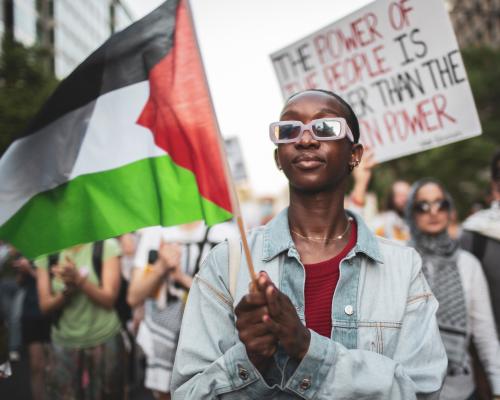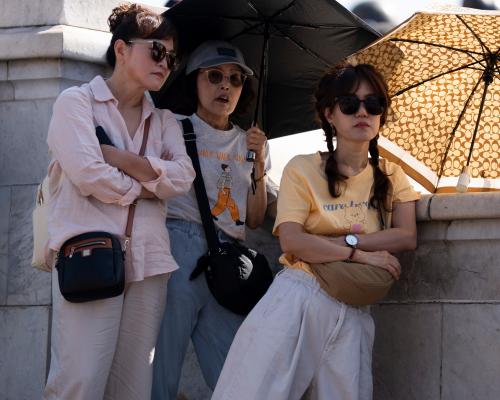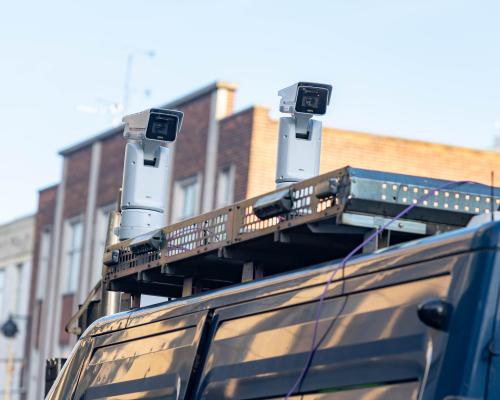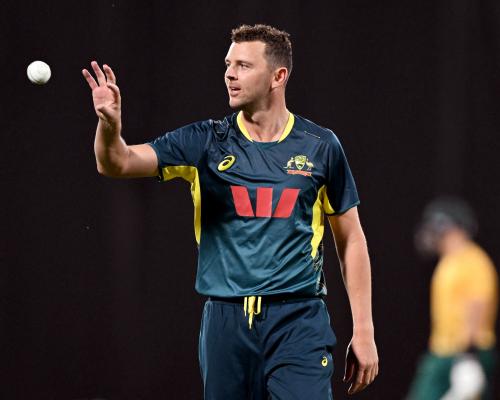
“Our freedom will be incomplete without the freedom of the Palestinian people.” When Nelson Mandela spoke those words in 1997, it resonated deeply across much of the Black diaspora, which has long felt a strong kinship with the struggles of the Palestinian people. In this week’s Long Wave, as yet more journalists are killed in Gaza, and some western countries make belated moves to recognise a Palestinian state, I examine the history of that Black solidarity, and how it has endured.
Before that, some housekeeping: we’d love to know what you think of The Long Wave – what you’re enjoying, what you’re not and how we can improve. So if you can spare a few minutes, please fill out this short survey.
A shared history of oppression
A Palestinian state was first declared by Yasser Arafat, the leader of the Palestinian Liberation Organisation, in 1988. Of the 84 countries that immediately recognised the new state, half were African or Caribbean countries. But statements of solidarity preceded recognition as the Palestinian issue was seen as emblematic of the struggles of so many postcolonial Black countries, and indeed that of Black emancipation movements in general.
The Black Panther Stokely Carmichael referred to Palestine as “the tip of Africa”. In a speech to the UN general assembly in 1994, Thomas Sankara, the president of Burkina Faso, said: “I think of the valiant Palestinian people, the families which have been splintered and split up and are wandering throughout the world seeking asylum. The Palestinians remind us all of the need and moral obligation to respect the rights of a people.” And, of course, Palestine connected with the longest independence struggle of all – South Africa, where Mandela viewed Palestine as not just similar but crucial to a broader global liberation.
***
‘Organically linked’ political synergy
In Africa, in particular, sympathy with Palestine developed not out of knee-jerk relatability but as a result of events. In the 1950s and 60s, Israel, which was established in 1948, attempted to cast itself as one of a rising number of countries shaking off the yoke of imperialism and establishing new, idealistic states. In doing so, it made inroads in the global south in general, and Africa, as the country attempted to counterbalance hostility from its Arab neighbours. But the wars of 1967 and 1973 sharpened the contours of Palestinian dispossession, as millions were displaced and their lands occupied, and Israel seized land in Egypt, Syria and Jordan.
This period was a turning point that, according to Dahlia El Zein, a historian of the modern Middle East and Africa, marked “the decline of Israel’s influence in Africa”, and alienated Israel from themes of postcolonial struggle, situating it on the other side of liberation movements. By the mid-70s, Palestine’s place at the heart of the postcolonial movement was entrenched. The precursor to the African Union, the Organisation of African Unity, stated in 1975 that “the racist regime in occupied Palestine and the racist regime in Zimbabwe and South Africa have a common imperialist origin … being organically linked in their policy aimed at repression of the dignity and integrity of the human being”.
***
Parallel struggles against imperialism
As political challenges evolved from battling with imperialism and its aftermath to establishing civil rights and anti-racism movements in the Black diaspora, so did solidarity with Palestine. If Palestine was the tip of Africa for the Black Panthers, it also occupied a similar position in the political geography of contemporary anti-racism activists.
Palestine interlocked with everything from diaspora labour union organisations, such as the UK’s Caribbean Labour Solidarity, to national and even international anti-racism movements such as Black Lives Matter. Years before the globalisation of the BLM protests in the summer of 2020, the movement’s organisers made the ending of Palestinian occupation a central demand, as well as advanced the adoption of the boycott, divestment and sanctions movement against Israel. At a 2021 protest for Palestine in New Jersey, Zellie Thomas, an organiser with Black Lives Matter, invoked the visceral familiarity some Black Americans felt with Palestinians. “We know occupation. We know colonisation, we know police brutality,” he said.
***
Gaza and a new era of solidarity
The unfolding genocide in Gaza, combined with the accelerating violence of settlers in the West Bank, has only validated and solidified the solidarity of those who, for generations, have seen how Palestine intersects with the violent structure of apartheid and the brutality of police and security forces. And it has further strengthened the Palestinian cause, making it not one of abstract ideology but a crisis demanding urgent intervention due to the role of western powers, particularly the US, in supporting Israel’s assault.
It was South Africa, a country with the most vivid and brutal experience of apartheid and segregation – and western enabling of that system – that brought the case against Israel at the international court of justice, in which it demanded that protections against genocide of the Palestinians be applied.
And in the diaspora, most crucially in the US, the prime sponsor of Israel, Palestine continues to reach new points of resonance. Last year, Ta-Nehisi Coates, the most celebrated Black writer on racism and reparations in the US, published The Message, a book in which he critiques Israel and places it firmly in the camp of his own country, whose racist history he knows so well.
Coates said the “closest analogue” he could think of when he visited the occupied Palestinian territories was “the time in which the United States of America referred to itself as a democracy, even as it was disenfranchising whole swaths of Black people in the southern states. And so, when I say Jim Crow, when I say segregation, that is because that is the period that immediately comes to mind for me.”
Perhaps this is why it has taken so long for western countries to recognise Palestine. Perhaps it is only when you can identify with the victims, when their fate speaks to your history and your lived experience, that solidarity becomes a spontaneous moral instinct rather than a political calculation.
• To receive the complete version of The Long Wave in your inbox every Wednesday, please subscribe here.




